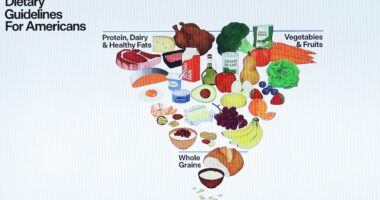Share this @internewscast.com
Health experts are raising the alarm over a rapidly spreading disease that is proving challenging to treat, leaving a significant number of patients in its path. Eric Sachinwalla, the medical director of infection prevention and control at Jefferson Health, has highlighted a concerning increase in cases of adenovirus, a condition bearing similarities to the flu and COVID-19. Unlike these more familiar illnesses, adenovirus offers fewer treatment options, meaning those infected may have to endure the symptoms with limited medical intervention.
While adenovirus is generally mild, it poses a greater risk to individuals with compromised immune systems, who may experience more severe symptoms. One of the key differences with adenovirus is its resilience; it is more robust than the flu or COVID-19, as it is not easily eliminated by standard cleaning methods such as soap, water, or common disinfectants. “It’s pretty contagious because it’s heartier than other viruses,” Sachinwalla explained to PhillyMad, emphasizing that its ability to survive longer in the environment makes it a more pressing concern.
The symptoms of adenovirus are varied and can include shortness of breath, a runny nose, and a sore throat. In some cases, symptoms may also involve diarrhea or conjunctivitis, as there are more than 60 different strains of the virus.
Sachinwalla advises that most people can manage adenovirus with adequate rest. However, those who are more vulnerable, such as the elderly, pregnant women, or individuals with weakened immune systems, should monitor their symptoms more closely.
He further emphasized the importance of seeking medical guidance if symptoms worsen, as adenovirus is transmitted through close contact. Consulting a healthcare provider can help determine whether the risks of visiting a medical facility outweigh the potential benefits of seeking in-person care.
One critical indicator of the virus’s severity is body temperature. Sachinwalla cautions that if a fever reaches 40°C (104°F), it warrants serious attention and could indicate a more severe condition.
Typically, symptoms should begin to improve after approximately two days. However, if it persists for longer than three days without relief, this is also a red flag.
The medic explained that a surge in flu cases in the southern hemisphere earlier in the year may have led to a rise in cases in the northern hemisphere now. He added that there is also the factor of fewer people going for a flu jab.














